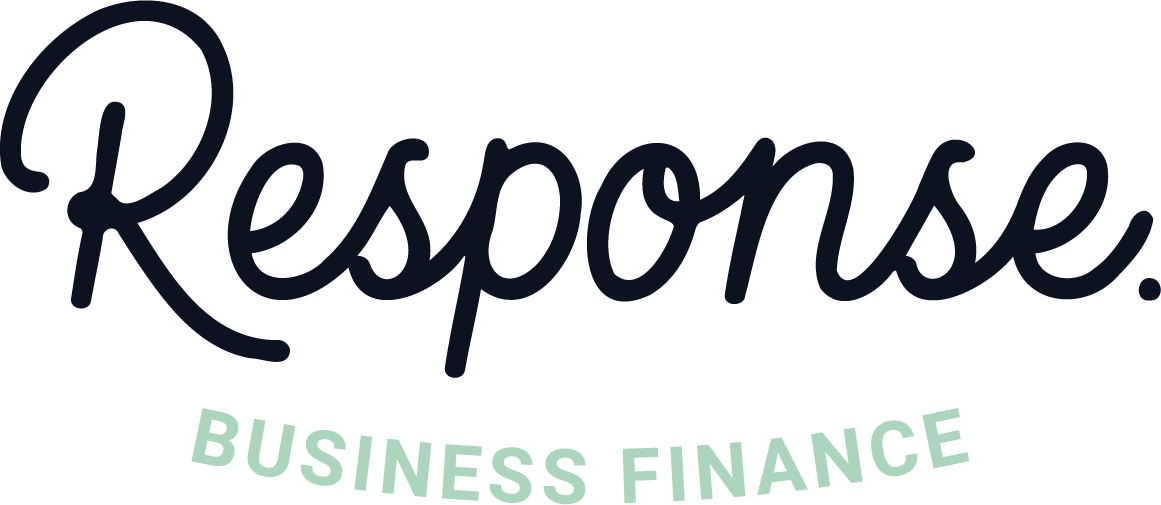
Blog Article by Response Business Finance
The Risks and Rewards of Using Invoice Finance
Invoice finance offers significant rewards including improved cash flow, faster growth opportunities, and reduced bad debt risk, but comes with costs typically ranging from 1-3% of invoice value, potential impact on customer relationships, and eligibility requirements that may exclude some businesses from accessing this funding.
Cash flow problems kill more businesses than lack of profit. When you’re waiting 30, 60, or even 90 days for customers to pay their invoices, your business can struggle to cover immediate expenses, pay staff, or invest in growth opportunities.
According to UK government research, cash flow issues are a pervasive and significant problem for UK SMEs. Invoice finance promises to solve this problem by unlocking the cash tied up in your unpaid invoices — but like any financial solution, it comes with both benefits and drawbacks.
The Perfect Invoice Finance Industries
Some sectors are practically designed for invoice finance. They share key characteristics: creditworthy customers, payment terms of 30+ days, and regular invoicing patterns.
What Is Invoice Finance?
Invoice finance allows you to borrow money against your unpaid customer invoices. Instead of waiting weeks or months for payment, you can access up to 90% of your invoice value within 24 hours. The finance provider collects payment from your customers and releases the remaining balance (minus fees) once the invoice is settled.
There are two main types of invoice finance — factoring and discounting — each with different implications for your business operations and customer relationships.
The Rewards of Invoice Finance
Immediate Cash Flow Improvement
The primary benefit is obvious: you get paid faster. Research by the Federation of Small Businesses shows that late payments cost UK small businesses £22,000 annually on average. Invoice finance eliminates this cash flow gap, giving you immediate access to funds that are rightfully yours.
This improved cash flow means you can:
Reduced Bad Debt Risk
Many invoice finance providers offer credit protection services. They’ll assess your customers’ creditworthiness and, in some cases, guarantee payment even if your customer defaults. This protection can be invaluable for growing businesses extending credit to new customers.
Professional Credit Management
Access to immediate cash means you can say “yes” to opportunities that might otherwise pass you by. Whether it’s a large order requiring upfront material costs or a chance to expand into new markets, invoice finance provides the working capital needed for growth.
Research by the Federation of Small Businesses consistently shows that access to working capital is one of the primary factors determining SME success rates.
Faster Business Growth
Unlike traditional loans with fixed amounts, invoice finance grows with your business. As your sales increase, so does your available funding. This makes it particularly attractive for fast-growing companies that might struggle to secure sufficient traditional bank funding.
The Risks and Drawbacks of Invoice Finance
Cost Considerations
Invoice finance isn’t free money. Costs typically range from 1-3% of your invoice value, plus interest on the advance. For a £10,000 invoice with 2% fees, you’re looking at £200 in charges. Over time, these costs can add up significantly.
The Financial Conduct Authority requires providers to be transparent about all fees, but it’s crucial to understand the total cost of funding before committing. Working with an FCA-regulated broker ensures you receive transparent advice about all costs involved.
Impact on Customer Relationships
With invoice factoring, the finance company deals directly with your customers. While they’ll act professionally, some customers might prefer dealing directly with you. There’s also a risk that customers could view your use of invoice finance as a sign of financial difficulty.
Invoice discounting allows you to maintain customer relationships by handling collections yourself, but this means you still need to manage the credit control process.
Eligibility Requirements
Not every business can access invoice finance. Providers typically require:
Certain types of businesses are better suited to invoice finance than others, particularly those with predictable B2B customer bases.
Concentration Risk
If you have a few large customers making up most of your revenue, invoice finance becomes riskier. Losing one major customer could significantly impact your funding availability. Providers may also impose concentration limits, restricting advances against invoices from any single customer.
Recourse vs Non-Recourse
Most invoice finance agreements are “recourse,” meaning you’re liable if customers don’t pay. If an invoice remains unpaid after an agreed period (typically 60-90 days), you may need to repay the advance plus fees. Non-recourse agreements offer more protection but are more expensive and harder to qualify for.
Long-Term Commitment
Many invoice finance agreements require minimum contract periods, often 12 months. Early exit fees can be substantial, potentially making it expensive to switch providers or return to traditional funding methods.
Making the Right Decision for Your Business
Invoice finance works best for businesses with:
It’s less suitable for businesses with:
Alternatives to Consider
Before committing to invoice finance, consider other options:
Each option has different cost structures, eligibility criteria, and implications for your business operations. If you’re unsure which funding type suits your situation, explore our full range of business finance services to understand all available options.
Getting Started
If invoice finance sounds right for your business, the application process typically involves:
- 1Initial assessment of your invoicing levels and customer base
- 2Credit checks on your main customers
- 3Review of your accounts and trading history
- 4Setting up the facility and legal documentation
Most providers can complete this process within 7-14 days for straightforward applications. To see real examples of how we’ve helped businesses secure invoice finance and other funding solutions, browse our detailed case studies.
Ready to explore whether invoice finance could benefit your business?
Apply online for a no-obligation assessment, or speak with our FCA-regulated advisors who can explain your options without any sales pressure.
Why Choose Response Business Finance for Invoice Finance Solutions
At Response Business Finance, we understand that every business faces unique cash flow challenges. Since 2010, we’ve helped hundreds of SMEs navigate complex funding decisions, including whether invoice finance is the right solution for their specific situation.
As an FCA-regulated broker, we work with a panel of trusted lenders to find invoice finance solutions that match your business needs and circumstances. We don’t push products — we take time to understand your goals, assess your customer base, and explain all options honestly.
Our founder Mark Squires brings extensive banking experience combined with the perspective of a business owner who has faced the same cash flow pressures you’re experiencing. This dual expertise means we can provide practical advice that goes beyond just securing funding. Learn more about our team and their experience helping SMEs across various industries.
Recent clients have secured invoice finance facilities ranging from £50,000 to £2 million, with approval times typically 7-14 days. We handle the application process, negotiate terms on your behalf, and provide ongoing support throughout your funding relationship.
Whether you’re exploring invoice finance for the first time or looking to switch providers for better terms, we offer no-obligation consultations to help you understand your options.
Contact our team for expert, impartial advice — or apply online for a comprehensive funding assessment. There’s no sales pressure, just straightforward guidance from experienced professionals who genuinely want to see your business succeed.
Frequently Asked Questions
Mark Squires
Managing Director
Mark Squires is a seasoned professional with a passion for transforming how businesses access finance. As the founder of Response Business Finance (RBF), Mark leads a boutique commercial brokerage built on the principles of sensibility, ethics, and proactivity. His vision is simple yet profound: to make commercial finance personal, offering tailored solutions that empower SMEs to thrive.




